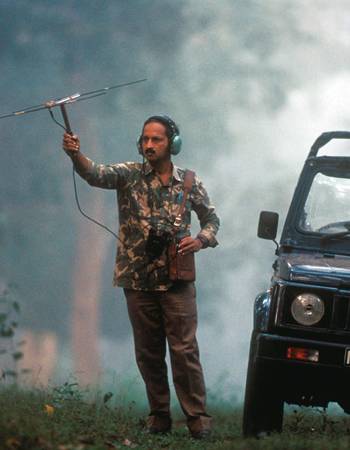Dr Ullas Karanth
Lifetime Service Award (2007)
Dr. Ullas Karanth is a quiet, determined, effective defender of the wilds. He is also unarguably one of the world’s finest wildlife biologists. Dr. Ullas Karanth (see Interview, page 28) is first a scientist but, does not hesitate to take on the mantle of an activist. His work is one of the main reasons why the Nagarahole and Bhadra reserves are doing reasonably well. He started out as an engineer, then turned to farming – while working, all along, towards becoming an amateur biologist. He eventually trained under the legendary Dr. George Schaller in the United States and that was the fork in his road. He is now a leading tiger researcher and conservation zoologist. He led a team that conducted a country-wide survey of tigers, radio-collared many tigers and leopards in Nagarahole to understand them better and established camera-capture-recapture as the method of choice to estimate tiger numbers. This provided a much more realistic picture of the tiger population in India than the inflated figures trotted out by self-congratulating state governments. As Director, Wildlife Conservation Society (WCS)-India Programme, he oversees the organisation’s efforts to protect tigers and collaborates with other conservationists, NGOs, forest staff and government officials to protect wildlife habitats – in his opinion the key to securing the future of tigers and wildlife. As an advisor to Wildlife First, he takes on the mantle of a crusader. Over the years, this NGO has played a key role in enabling the voluntary resettlement of people around Nagarahole and Bhadra, in protecting Kudremukh from mining, and facilitating the creation of three Protected Areas in the Western Ghats. Winner of the J. Paul Getty Award for Conservation Leadership in 2007, his myriad scientific accomplishments have been mirrored by telling interventions in the field. His work has helped shape conservation policy and through the MSc. Programme at the National Centre for Biological Sciences (supported by WCS), he is chartering the future of conservation biology in India as well.


